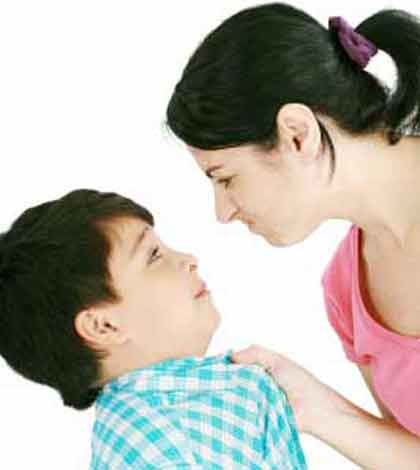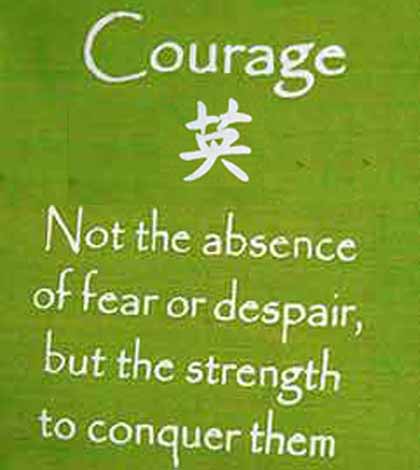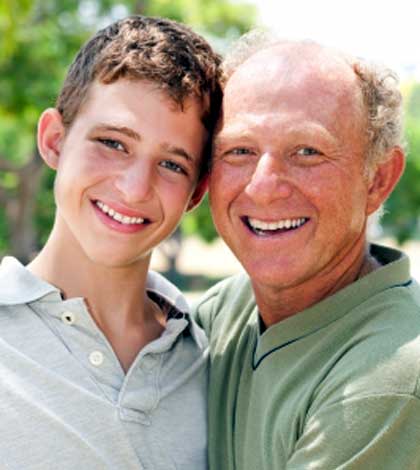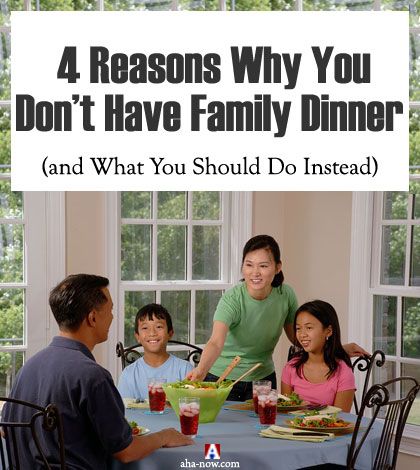Is Yours the Most Effective Parenting Style

Every parent as an individual is different and has a unique parenting style. With so many parenting styles adopted by all parents, it’s hard to decide which the best one is.
I think it would not be right to declare any one parenting style as the best. However, certainly some of them are effective and some not.
Before labeling any parenting style as good or bad, we should first know what we ideally expect from it in general.
What can parenting styles do
A parenting style is a collection of strategies and techniques that a parent uses to raise his or her child.
Most parents expect their parenting style to help the child to:
- be successful and have a good life
- become responsible and mature with age
- have self-control, ability and positivity
- become self-confident and have a great self-esteem
Some parents also prefer their parenting style to develop their child as:
- obedient and useful
- socially responsive and torch-bearer of family traditions and values
Whereas, I think a parenting style is effective if besides the above mentioned it also helps the child to:
- become a good human being
- have a passion and purpose of life
- be happy and have self-respect
- have courage and be strong to face the world
Can one parenting style fulfill all these aspirations of all parents?
No. More so, the parenting styles differ depending on the people, places, circumstances, and other reasons.
But it all comes down to whether the parenting style works for you or not. If it does, it’s good for you, and if it doesn’t, then it’s bad.
Right?
Well, I think something is missing. It’s not only about you – the parent. The parenting style cannot be termed effective until it works for the child too.
This is where the differences crop in. The various parenting styles differ according to the degree of the child’s involvement and the parent’s strictness and its combination in the parenting process.
Types of Parenting Styles
In 1966, Diana Baumrind came out with prototypical descriptions of 3 parenting styles. They are – authoritative parenting, authoritarian parenting, and permissive parenting.
As the name suggests, in permissive parenting the parent is most lenient, democratic, and avoids the exercise of control. The parent more or less accepts the desires and actions of the child, being non-punitive.
This parenting style generally leads to rebellious and defiant children if their demands are not met, have low persistence to challenging tasks, and are attracted towards antisocial behaviors.
In authoritarian parenting, the parent uses force and punishments to shape and control the child. The parent wants the child to accept and do what is told.
This parenting style leads to children who are unhappy, withdrawn, and anxious. The boys may become hostile while the girls are likely to give up.
In authoritative parenting, the parent deals and directs the child using dialogue, reason, and explanations. The parent takes a balanced approach.
This parenting style leads to lively, happy, and self-confident children who’ve developed emotions and social skills.
With time, people have classified more parenting styles like the instinctive parenting, where the parents are likely to teach what they’ve undergone or learned in their own upbringing.
In attachment parenting the parent tries to form a strong emotional bond with the child. They respond promptly to their child’s needs, avoid punishments and are very sensitive.
Helicopter parenting is where parent hover around the child and constantly interact with them, often interfering in their lives. Too much of this parenting style can make the children too dependent on the parents.
There’s yet another parenting style known as uninvolved parenting, where the parents only fulfill the child’s basic needs and stay detached from their life.
It is, however, possible that in a two-parent household, both parents may adopt different parenting styles, and the resultant effectiveness depends on how much the parents coöperate among themselves.
There were and are many more parenting style and they vary because of differences in personality of parents, culture, socioeconomic status, religion, and educational level.
You can read more in detail about the parenting styles here, and for a self-assessment test of your parenting style click here.
Over to you –
Which parenting style do you use? Does it work? Did your parents use an effective parenting style to raise you? Which among the above you find as the best parenting style and the most effective one, and why?
Photo Credit: FreeDigitalPhotos











Hi Leena,
I’m just stopping by to say Happy Holidays to all my blogging friends. Thanks for all the support, comments, visits etc. I hope you have fun with your loved ones and I wish you all the best for 2013.
Excellent post, Harleena and thank you for explaining the difference between authoritarian, authoritative and permissive parenting.
It’s interesting that in the western world 30-50 years ago parenting was very authoritarian and children were virtually tortured with sticks and belts beatings in some cases. I personally know some people who endured this as children. Believe it or not, it was very common.
On the other hand, however, today they are a lot of parents who are practicing permissive parenting with no rules what so ever. It’s mess. I’ve observed some of those as well.
Of course, the best parenting is the one that is balanced, the authoritative parenting, where rules and discipline exist, but not torture and rage, or lack of discipline.
Thanks for this great information
Harleena,
Wonderful article and well classified parenting style.
Indeed, When kids grow up most parents will have fear! This is about their discipline, social bonding, behavior, education and so on. So being authoritarian & authoritative is quite obvious.
I wish to consider kids parenting age as 0-5, 6-12, 13-19. That means, Being a parent we have a big work around at every stage, about great parenting and there exists a deep learning curve. Most parents, It’s very hard to leave kids to let have their own decision and many time it leads good and some time bad results as well when they are very young.
It’s little tricky and difficult to let the kids to have their own decision at very early stage for all scenarios, and parents need a balanced work flow to achieve this target 🙂
Thanks for sharing post.
Harleena, what a wonderful response! I have given a lot of thought to your insights. You’re absolutely correct, there is no one right answer for every family. They need to do what is best for them.
When the Tiger Mom book was big here last year, there was a big debate between the Chinese style of parenting versus the American style. How much do we push our kids? How much is too much? How much is too little?
I think of things like the Olympics where the US does well. The athletes who tend to succeed aren’t the ones who are pushed, but the ones who are self-motivated. When I was a teenager, my passion was tennis and I would practice for hours until it became dark. I became quite good that way and I loved following my passion.
That’s why I’m such a big fan of iRewardChart, the app I named The Best App Ever in a blog post. That app gives incentives for kids to do chores. I’m a big believer that when kids are self-motivated they will do their best.
What are your thoughts on this, Harleena?
Hi Harleena,
This was a most interesting post and I really enjoyed reading it.
One thing I realised is that indeed, there are different types of parenting models, which I wasn’t aware of before. The different types of models reminded me of the different types of leadership models and I could see a number of similarities between them both.
It made me think of one thing. When it comes to leadership for instance, each one of us usually has a dominant style. Hence we have to make some effort to change our default style (which might not be suitable to deal with a particular scenario) to another more appropriate style.
Do you reckon that we all might have a dominant parenting style as well, which has been impacted by our own upbringing and personality traits?
Thanks again for a most thought provoking post!
Hi Harleena,
If I was to have to pick a parenting style I would pick, “In authoritative parenting,” the parent deals and directs the child using dialogue, reason, and explanations. The parent takes a balanced approach.
You always need a balance when it comes to raising kids. However, I feel that each child is different and you have to learn to parent them as to their personalities. My oldest one was one that you could always talk too. The second one, you had to be a little firm with. She did not listen well. The third, she was quite and you had to figure out what was really going through her mind.
By showing them lots of love, giving them boundaries, listening to them and trying to understand them for who they really are as an individual is very important. Seeing their strong areas and helping them use those for good. Seeing there weak areas and helping them to overcome there fears and be stronger.
To me what is really important is to understand each child is different and there is NO ONE SIZE FITS ALL. Love goes a long way when it comes to raising children.
I’m not a parent either, Harleena. But, I found this article very fascinating. I can see how each style would be effective and a hindrance to the child’s development.
Many times people use the same parenting skills and techniques that were used to raise them. Then there are those who didn’t have the best conditions growing up, who believe they will give their child a better life than they had. Usually, it’s only in those areas where it has been proven time and time again, children are in need of such boundaries being in place. This article will assist parents (new and seasoned) in determining what style they’re using, and perhaps even assist others with making any necessary changes.
Very insightful, Harleena!
Parenting styles can never be taught, can never be similar to two families.
In my opinion, it can even be termed ” Style”.
Hi Harleena,
You know I’m not familiar with parenting, but I can relate with the parenting style used by my parents. 🙂
I had no clue about parenting styles and mostly I thought it’s the way that the parents are. 🙂 Their behavior, thoughts, experiences etc.
I think I have been exposed to both authoritarian (father) and authoritative (mother) parenting styles 🙂 May be the authoritarian parenting is used with the good intentions in mind, but I’m totally agree with the boys part here ~ The boys may become hostile while the girls are likely to give up.
Cheers…
Such a wonderful topic of discussion. I have been raised under the authoritative but it doesn’t mean we didn’t have a say. The communication was two way but we were disciplined. We knew our limits and we knew our boundaries and there was a clear demarcation of right, wrong, acceptable and unacceptable. I feel as long as the children are well connected and have a sense of confidence and esteem and yet know that they have their parents to fall back on, the parents are doing a fine job.
I feel parenting is probably the toughest job on the planet. By as long as you as parents realize the importance and value of raising a child!
I don’t really recognize any of those parenting styles as the ones my parents used. I mean it was more just “go to your room” without the yelling. Most of the times they never even told us what we did wrong but we soon figured it out.
I have a feeling that things are a whole heck of a lot different today and I seriously don’t know what kind of parent I would have been. I would hope that I would have talked it out with them in a reasonable tone to let them know what they did. I would have been like my mother though in the respect that when you’re grounded, you’re grounded and there is no letting up even 1 second early. Man, she was strict like that. I did respect her though. My Dad just stayed out of it.
Great post on parenting… I learned some things here.
~Adrienne
My husband and I used the authoritative parenting style, since I had read “Raising a Responsible Child,” by Don Dinkmeyer and Gary McKay and many other such books. It seems to have worked well because both of our children are happily married with children of their own.
Thanks for posting this informative, thought provoking list!
Welcome to the blog, Leah!
Yes, I agree anything near to authoritative parenting style works best as it’s a mixture of strictness blended with leniency. I’m glad it worked well for you.
Thanks for stopping by and sharing your personal life experience. 🙂
Excellent points, Harleena! I’m thinking Tiger Mom is authoritarian?
I wanted to include the western and eastern parenting styles in detail in this post, including the case of Tiger Mom and a few Indian parenting cases that were in limelight recently, and am glad you brought forth this point.
Looking through her perspective and from a pure Chinese point of view, maybe Tiger Mom is being as what a parent should ideally be, and not authoritarian at all. In India the earlier generations were very staunch about instilling values (called ‘Samskars) in early childhood so the child doesn’t choose and tread the wrong path when he or she grows up. The Chinese may be go a bit further by as what it seems to us, being hard on the kids.
It has its benefits in the terms that those kids grow up to be successful in their professions.. look up at the medals tally in the recent Olympics.. the Chinese were nearly neck to neck with the Americans.. and observational research also concludes that authoritarian kids are good in academics too.. as in case of many Indian families. However I agree, these are not the only criteria to judge the quality of parenting and life.
So, I think it whatever labeling we do is based on our own perspective and values, which doesn’t necessarily make the person be that. Is this the case of being judgmental? What do you say Carolyn? I wish we had somebody put forth the Chinese point of view in this discussion, but I’m afraid I do not have any Chinese readers.
Harleena – I loved this article….Helicopter parent…hahahaha….that was hilarious, but yet true to an extent. We always tend to oversee what our kids are upto and judge their every behavior.
Authoratative parenting comes naturally to everyone, we always think we are better and our ways are the right ones and try to impose them on our kids. We never let them have their own opinions and ways in life, which is very bad.
I think being permissive sounds best, but very hard to follow in practical world. It takes a lot of will to let go and not be involved in your kids decisions especially when they are toddlers. I am not sure but i think it will be harder when they get to teens even 🙂
Thanks for sharing this wonderful article.
Glad you like the article, Praveen!
I used this term “Helicopter parenting” from an article, but I think it should’ve been “Hovercraft parenting” instead! Lol. However, I guess the meaning was conveyed.
It is important to let the kids learn and be on their own to some extent, but on the other hand excess of freedom turns counterproductive.
I agree that authoritative works best for most parents, and further as a parent we should always be in the learning mode and improvise our parenting style with time and as the children grow.
Although everything depends on how the individual is and we cannot generalize things, but it is mostly observed that permissive parenting does more harm than good. Especially in the early years, it’s not the kids but the parents know more and about what is good or bad. So even if you want the reins in your kid’s hands, it’s you who needs to control and decide on the direction of the course.
Thanks for taking out time and sharing your views. 🙂
Hi Harleena, This is fascinating.
I enjoy reading about different parenting styles but didn’t know that they have categories like these. In the US now there is a controversial best selling book that says the French are better parents than American parents. The French love their kids but their lives don’t revolve around the kids. Here in the US, families now tend to base their lives on the lives of their kids. I am afraid that many US kids do grow up with the expectation that the world revolves around them.
We definitely practice authoritative parenting, but I have seen families where there is permissive parenting and you have to cringe as the kids run the show. It’s interesting because now on television parents are portrayed as stupid, with permissive parenting and kids seem to have all of the answers. Older TV shows portrayed authoritative parenting, such as “Father Knows Best” and the “Cosby Show.”
What are you observing in your world, Harleena? Have times changes where you are?
Carolyn, even I didn’t know there were so many types of parenting before I did the research for the post. Actually you can name it any way you like; however, there remain four major types of parenting styles.
Authoritative parenting is voted as the best by most parents and experts. A middle and balanced approach is always better and has bits of everything in it. In India, the earlier generations were predominantly authoritarian, which did convert to authoritative, but presently I see many middle class parents following the permissive parenting style.
Indians are following the American ways and lifestyle to an extent, especially the middle and higher class people. I very much go for authoritative parenting style, and I like to balance between being authoritarian and permissive at times as per the circumstances. With the increase of nuclear families, the new generation is getting more child-centric, turning into an advanced permissive way of parenting, called by some people as helicopter parenting.
I understand that people are free to choose any parenting style they feel like, and they know best what suits them and their families in the context of their culture, religion, region etc. Actually, I wanted to write more on that but didn’t have much time on hand, which helped me keep the post short.
French and American, Chinese and Indian, Western and eastern parenting styles have been compared in past times; while every style has some pros and cons, nothing conclusive can be said about any particular parenting style to be the best.
Thanks for sharing your views and contributing to the discussion. 🙂